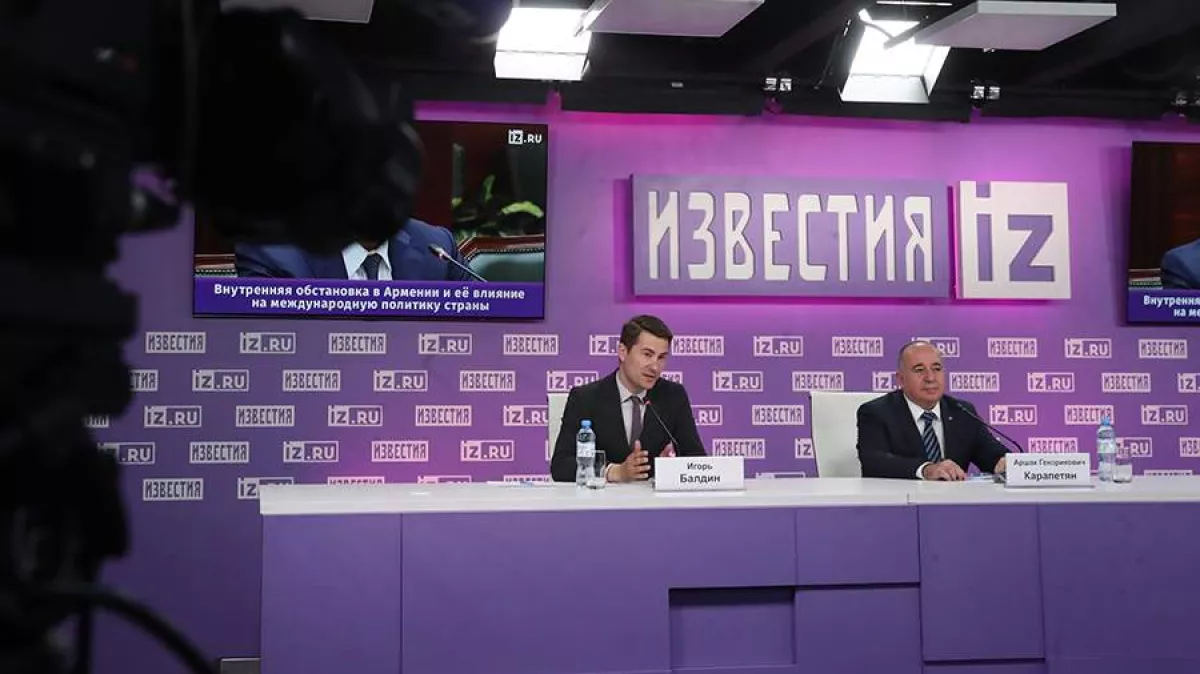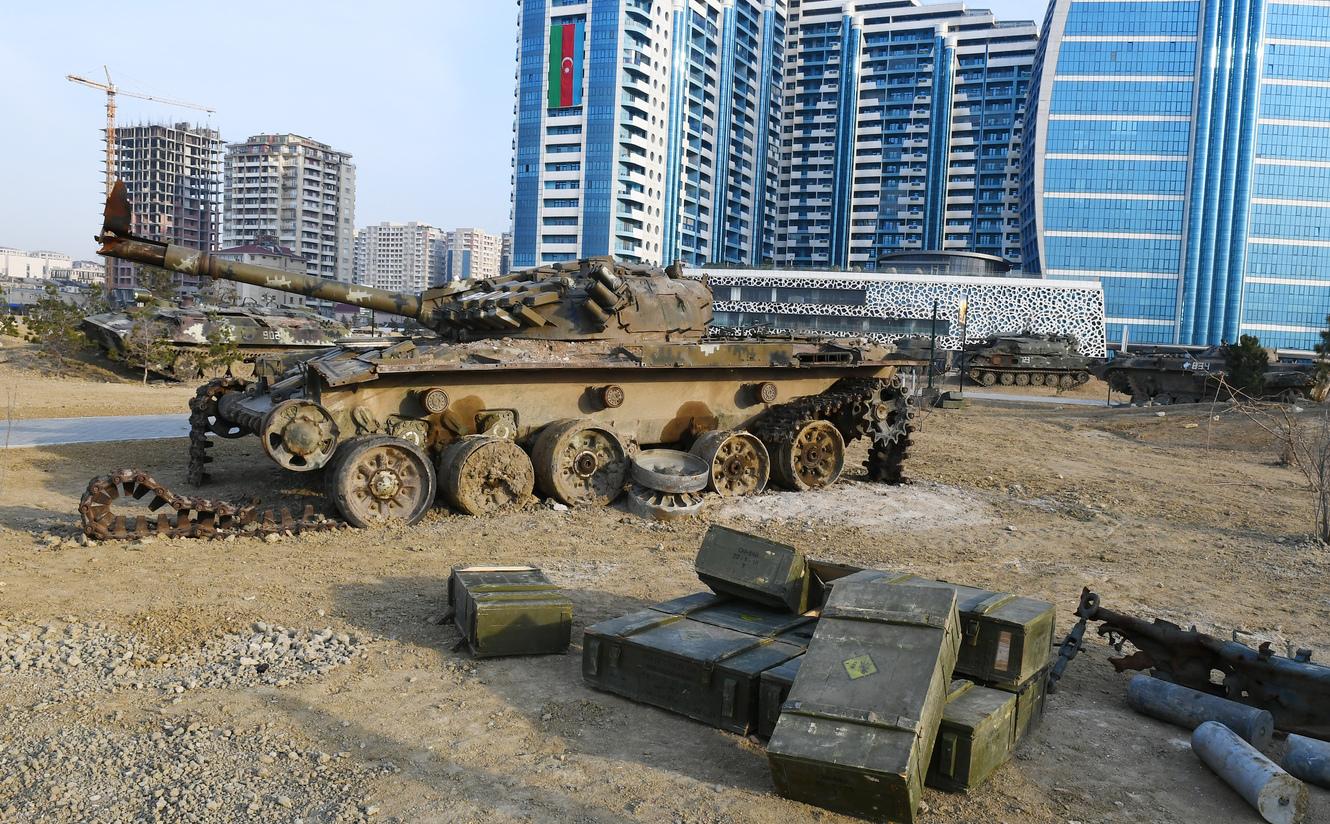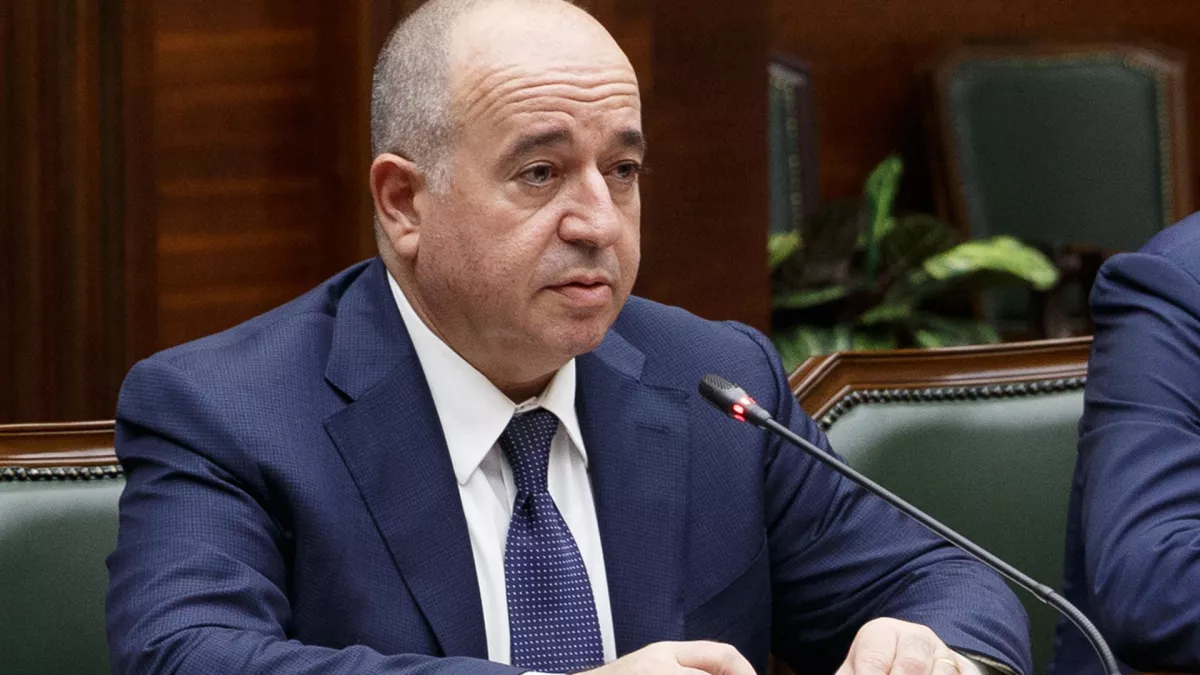Moscow and its puppet Decayed narratives about Karabakh
Former Armenian Defence Minister Arshak Karapetyan held a press conference at the MIC "Izvestia" press centre, during which he proved two obvious things at once. First — that he is a conveyor of Russian narratives, and second — that Russia itself is a state that did everything possible to prevent the full restoration of Azerbaijan’s sovereignty and territorial integrity.
That is precisely why Karapetyan recalled the statement by Russian Foreign Minister Sergey Lavrov during his recent visit to Yerevan. Let us remind that, according to Lavrov, “for at least the last 20 years, President Putin, then President Medvedev, then President Putin again have promoted solutions that ensured a fair approach through peaceful negotiations.”
So, what exactly, according to the Russian foreign minister, was this "fair approach" to resolving the Armenian-Azerbaijani conflict?
“Out of the 7 Azerbaijani districts, give away 5 as the first step. And as an interim stage, keep both the Kalbajar and Lachin districts — which are vast territories connecting Armenia to Karabakh — in their current status. The issue of Karabakh’s final status would be postponed for many years. Essentially, it was about deferring this question to future generations. Perhaps this is better than what happened now, because these proposals, promoted by the Russian leadership for many years, were rejected,” Lavrov declared in the Armenian capital.
And in Izvestia, whose journalist Igor Baldin clearly showed disrespect for Azerbaijan’s territorial integrity by calling the Karabakh region “Artsakh,” Karapetyan “chewed over” the essence of the Russian foreign minister’s statements: “How else could you explain to the illiterate Armenian leadership that with this phrase Lavrov was essentially recognizing that Russia acknowledged Karabakh as part of Armenia?”

Well done, Arshak, bravo! In fact, no one in Azerbaijan ever doubted Russia’s unwillingness to facilitate a fair resolution of the Armenian-Azerbaijani conflict. But here, first Lavrov did what lawyers call a “confession,” and then Karapetyan confirmed the obvious, making both of them clowns compared to other Russian loudmouths with low social responsibility, who repeatedly lie, claiming that Azerbaijan’s historic victory in the 44-day war and the one-day anti-terrorist operation in the Karabakh region became possible thanks to Russia’s support of Azerbaijan’s actions. In reality, Azerbaijan’s victories were won despite and against Russia’s plans.
No one in Azerbaijan has forgotten that Russia continuously supplied Armenia with weapons—sometimes covertly and clearly illegally. For example, on April 2, 1997, at a closed session of the State Duma, the late General Lev Rokhlin delivered a report on the situation in the South Caucasus, during which he touched upon the issue of illegal arms transfers by Russia to some CIS states. He found out that new weapons were being sent to Armenia, sometimes even coated in factory grease, while on the paperwork, everything was written off at scrap metal prices. Rokhlin publicly stated what Azerbaijan had been loudly proclaiming for many years: Russia was arming one side of the conflict, thus fanning an even greater fire in the South Caucasus! In fact, nothing changed later on.
Even during the 44-day Patriotic War, planes regularly flew from Russia to Armenia loaded with weapons, and leaders of the Armenian diaspora in Russia openly bragged about it. There is really no need to prove much here. There is data on what weapons the Armenian army possessed—almost entirely Russian-made. Some of these can now be seen in the Military Trophy Park in Baku. Anyone interested can come to the Azerbaijani capital and see it all for themselves.

But it’s not only about Russian weapons. Arshak Karapetyan also acknowledged a well-proven fact — Russian servicemen fought on Armenia’s side during the First Karabakh War. Here, it’s worth recalling the story told by Russian TV journalist Alexander Nevzorov about Azerbaijan’s National Hero, Vazir Orujov. Nevzorov called him the bravest person he had ever met in his life.
The Russian journalist also revealed that Russians fought on the Armenian side in the First Karabakh War: “It turned out that it was not Armenians advancing, but Pskov paratroopers hired by the Armenians.”
Karapetyan also criticised Armenia’s first three presidents, accusing them of insincerity towards Russia and of flirting with the West. He even went as far as to suggest replacing not only the current Armenian government but its entire opposition as well.
And finally, Karapetyan declared the inevitability of a new Armenian-Azerbaijani war. However, before that, he lamented the Armenians’ lack of what they once boasted about — their fighting spirit. And how does he suggest they should fight in this case? That’s right, by relying on Russia. “It was like that in school days, and in youth — you went and brought the guys who would protect you,” Arshak said, portraying Armenia as the beaten one and Russia as the “guys” who are supposed to defend it.

What a “profound thought,” indeed. It’s no surprise that it was voiced by the very same figure who, on December 5, 2024, was declared internationally wanted on charges of illegal involvement in entrepreneurial activities, abuse of official powers, and exceeding authority. He was arrested in Moscow on December 29 last year but was soon released on a travel ban. Now it is clear why he was allowed to remain in Russia — to voice what some Kremlin towers think. And to make it sound more convincing, a political movement called the “All-Armenian Front” was created around Karapetyan.
In Armenia itself, he is an even more pitiful and ridiculous figure than Robert Kocharyan, Serzh Sargsyan, and the leader of the Democracy, Law, Discipline party, the foul-mouthed Vardan Gukasyan. Such a character should not be trusted not only with a change of power in Armenia but even with changing the wallpaper in an apartment. But the point is that those thirsting for a new Armenian-Azerbaijani war are experiencing a genuine shortage of personnel. And to satisfy this need, clowns like Karapetyan are brought onto the stage, eagerly narrating the provocative plans of their patrons with the enthusiasm of a child reciting their first-ever poem.








